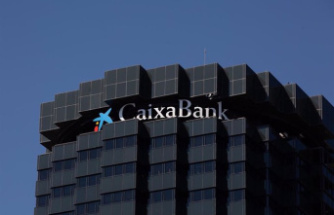MADRID, 27 Nov. (EUROPA PRESS) -
Capital Group anticipates that US high-yield companies will ride out the recession forecast for the next few quarters without a hitch, as they are currently in a position of strength from previous crises.
This was highlighted by the firm's fixed income investment director, Flavio Carpenzano, in an interview with Europa Press. Carpenzano believes that there are many opportunities in fixed income for 2023, given the 'yield' levels that have been recorded: whereas before you had to risk a lot to get 4%, now you can get 6% assuming much less risk .
Capital Group is more focused on good quality credit, given the uncertainty of the economy at the moment, with ratings of BB, although Carpenzano has stressed that US high yield "has improved massively in recent years."
"US high yield companies are entering this recession from a strong position, and they are probably able to get through this recessionary environment," he said, and despite the risk of default, the 9% return it offers makes up for it.
This is because many investment grade companies were downgraded to high yield during the Covid crisis, so as the economy improves they have upgraded their rating.
"If you compare the current situation with that of 10 years ago, only 35% of the US market was rated BB," he recalled. At that time, the energy sector represented 20% of all US high yield, and suffered in recessions due to falling energy prices.
Although now it continues to concentrate 12% of the total, 65% of these companies are rated BB. Added to this is the fact that many of the companies do not need to issue more debt, since they already did so when conditions were more favorable.
On sovereign debt, the firm maintains a negative outlook for the Italian in terms of valuation. However, Carpenzano has indicated that he expects the new government to continue, so the lack of conflict could have a positive effect.
Capital Group currently takes a constructive view of local currency emerging market fixed income, thanks to the resilience of these markets and central banks in these geographies raising rates ahead of developed economies. Also, they are used to having high inflation.
The director of fixed income investment has indicated that it is very difficult to establish a baseline scenario in this context due to uncertainty, although he has specified that the two main 'drivers' are going to be the dynamics of inflation and bank actions central.
Regarding the first, Carpenzano explained that it will depend on whether it is more structural and remains high at around 5%, or if it is more cyclical, which could drop to 2%.
The labor market and globalization are some of the most important factors to take into account in this regard. "After 20 years of globalization, prices have fallen a lot. Now it is reversing and that can keep prices high, along with geopolitical risks. That creates uncertainty," he said.
The decisions made by central banks, which are focused on moderating this price rise, will have a greater impact next year.
Regarding Europe, Carpenzano believes that both the European Central Bank (ECB) and the Bank of England will be forced to prioritize financial stability over inflation, thus limiting their ability to raise rates.
"They will continue raising interest rates this year and the beginning of next year, but then they will stop and assess the damage," he said.
The possibility of the ECB launching 'quantitative tightening' in Europe is very low in the firm's baseline scenario. "Simply the lack of 'quantitative easing' creates volatility because you don't have an economic agent that buys debt regardless of its price," he pointed out.
On the other hand, Carpenzano has called attention to 'shadow banking', that is, entities that lend money, but that are not part of the traditional financial system. These did not exist in the financial crisis of 2008 and have grown a lot in recent years, but they have never been through a crisis. "There are sectors that are very sensitive to these rate hikes," he stressed.













